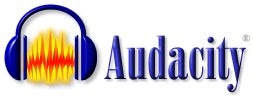
It is important that every individual, family and business have a computer repair service plan in place to protect themselves from these cyber terrorist.
A slow running computer or a computer that crashes frequently may be a sign of Malware (Trojans, viruses, worms, and other malicious code) on your computer. These hacker tools not only can be used to steal sensitive information from your computer they slow your computer down or even cause computer crashes. Unfortunately, traditional over-the-counter computer protection products don’t keep up with this growing problem. If they did would we continue to have these problems?
Over the last three years there’s been a huge shift from curious hackers to professional hackers creating devious methods to steal proprietary information from computers like yours. This evolving threat is costing individuals and businesses tens of billions of dollars every year. V. McNiven, an advisor to the U.S Department of treasury has stated, "The proceeds from cyber are now greater than the sale of illegal drugs.
These evil hackers continue to find more devious ways of stealing financial and proprietary information. It is important that every individual, family and business have a computer repair service plan in place to protect themselves from these cyber terrorist.
You might be surprised to learn that computers that don’t go online are vulnerable through file sharing from infected flash drives, cds and floppies. These devices, when infected, can install scrambling software or logic bomb software that opens up the possibility of extortion to get your proprietary information back
2007 PC Magazine survey of 42,000 PCs worldwide released last September showed the top speed killers.
The problems included:
- Over 52 percent of the PCs surveyed were clogged up with spyware.
- Over 60 percent of the PCs surveyed had un-optimized Internet settings slowing the Internet down and even signaling that spyware and other malware have secretly stolen portions of your bandwidth to run on your PC.
- Surveyed computers also contained an average of twelve serious registry problems per unit that may have been caused by spyware and other malware.
Incredible, many of these computers are supposedly protected by the over-the-counter products that aren’t doing what they promise to do. So how can individuals and small businesses protect against identity theft, fraud and extortion? How can they get their computers back to running like new again?
Here are six crucial steps to protecting your computer and making it fun and productive again:
1. Keep your computers patched. Microsoft has automatic patch updates. Make sure are signed up to receive them.





